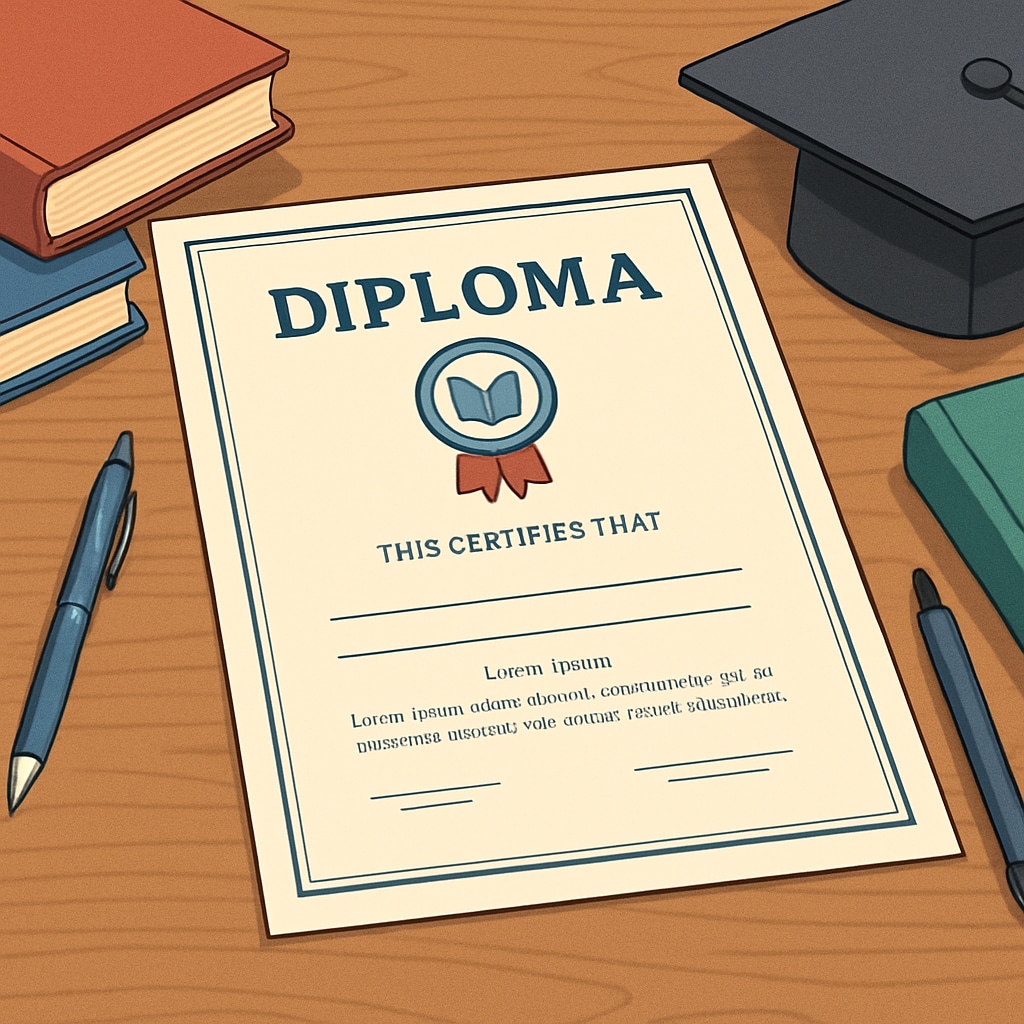For students holding modified high school diplomas, feelings of regret and inadequacy can often emerge when comparing their achievements to peers with standard diplomas. These emotions are not uncommon, as the distinction between a modified diploma and a standard diploma can have real-world implications for career opportunities, higher education, and self-perception. This article delves into the challenges faced by modified diploma holders, explores the psychological impact of such differences, and provides actionable steps for those seeking to convert their modified diploma into a standard one while fostering personal growth.
Understanding the Difference Between Modified and Standard High School Diplomas
A high school diploma is more than just a piece of paper; it symbolizes the culmination of years of education and effort. However, not all diplomas are created equal. A modified diploma is often awarded to students who, due to learning disabilities or other challenges, complete a curriculum that differs from the standard requirements. While this type of diploma recognizes effort and achievement, it may not meet the qualifications for certain jobs, military service, or admission to some colleges.
On the other hand, a standard diploma is the traditional qualification awarded to students who fulfill the general curriculum and testing requirements set by their education system. This distinction can create barriers for modified diploma holders who wish to pursue specific opportunities, leading to feelings of regret and self-doubt.

Psychological Impact of Holding a Modified Diploma
Regret is a powerful emotion that can significantly influence an individual’s self-esteem and motivation. Modified diploma recipients may grapple with questions about their capabilities and worth, particularly if societal perceptions undervalue their achievements. For example, encountering job applications or college programs that require a standard diploma can reinforce feelings of inadequacy.
It’s essential to recognize that such emotions, while valid, do not define one’s potential. Many successful individuals have overcome educational setbacks by focusing on their strengths and pursuing alternative pathways to achievement. Developing resilience and a growth mindset can help individuals reframe their experiences and view their diploma as a stepping stone rather than a limitation.
Pathways to Upgrading a Modified Diploma
The good news is that transitioning from a modified diploma to a standard one is often possible with dedication and the right resources. Below are some practical steps for those who wish to pursue this goal:
- Enroll in Adult Education Programs: Many community colleges and adult education centers offer courses designed to help individuals meet the requirements for a standard diploma. These programs often include flexible schedules and tailored support.
- Take the GED Exam: The General Educational Development (GED) test is a widely recognized alternative to a high school diploma. It assesses knowledge and skills equivalent to those of high school graduates and can open doors to employment and higher education.
- Seek Academic Counseling: Professional academic advisors can provide guidance on the specific steps needed to meet diploma requirements in your state or region.
- Leverage Online Learning Platforms: Platforms like Khan Academy and Coursera offer free or low-cost courses that can supplement traditional learning and help you prepare for exams.
By taking these steps, individuals can transform feelings of regret into proactive efforts toward achieving their goals.

Moving Forward: Shifting Mindsets and Embracing Growth
While pursuing a standard diploma is a commendable goal, it’s equally important to focus on personal growth and self-acceptance. Here are some strategies for shifting your mindset:
- Redefine Success: Success is not solely determined by educational qualifications. Identify and celebrate your unique talents and achievements.
- Set Realistic Goals: Break your objectives into smaller, manageable steps to maintain motivation and track progress.
- Build a Support Network: Surround yourself with people who encourage and inspire you, whether they are friends, family, or mentors.
- Focus on Lifelong Learning: Education is a continuous journey. Embrace opportunities to learn and grow, both personally and professionally.
Ultimately, the journey to self-improvement and fulfillment is not defined by a piece of paper. By adopting a growth mindset, individuals can overcome the limitations imposed by a modified diploma and achieve their aspirations.
Readability guidance: This article uses short paragraphs and lists to enhance clarity. Passive voice and long sentences have been minimized to ensure readability, while transitions such as “however,” “in addition,” and “for example” improve flow.


